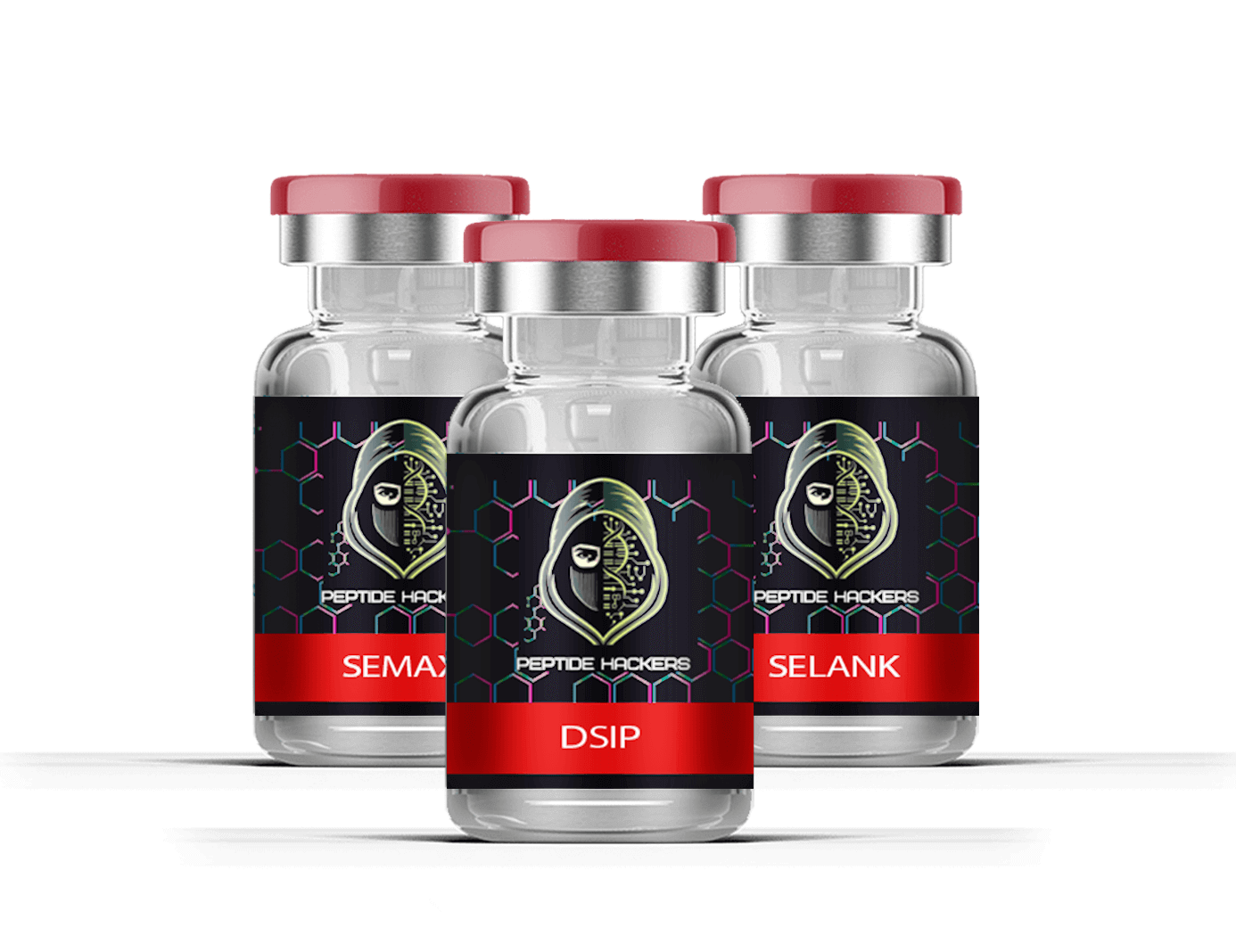Peptides and Sleep: Enhancing Restorative Sleep Naturally

Peptides For Sleep: A Comprehensive Guide
Sleep is essential for our health, physical recovery, brain function, and overall well-being. Despite how important it is, many of us struggle to get a good night’s sleep due to stress, lifestyle, and underlying health issues. According to sleep medicine, getting sufficient, restorative, and deep sleep is crucial for maintaining optimal health, similar to regular exercise and a healthy diet. Peptides for sleep are a natural solution to better sleep. In this post, we will look at how peptides can help you sleep better and achieve a good night’s sleep, along with restful sleep and healthy sleep habits.
What are Peptides?
Peptides are short chains of amino acids that are the building blocks of proteins. They do many things in the body, including acting as signaling molecules that control various physiological processes. Some peptides can regulate sleep patterns and improve sleep quality.
Some peptides for sleep are sleep-promoting substances like Factor S, delta sleep-inducing peptide (DSIP), and other peptides like arginine vasotocin, insulin, cholecystokinin, bombesin, and muramyl peptides
Good Sleep and Sleep Quality
A good night's sleep, also known as deep sleep, is important for:
-
Physical Recovery: Deep sleep is when the body repairs tissues, builds muscle, and strengthens the immune system. Regulating body temperature is key to a good night's sleep as it controls sleep hormone circulation and the sleep cycle.
-
Cognitive Function: A good night's sleep is important for memory consolidation, learning, and overall brain health.
-
Emotional Well-being: A good night's sleep helps regulate mood and reduces the risk of mental health issues like anxiety and depression.
-
Hormonal Balance: A good night's sleep is important for hormonal balance, including hormones that control appetite and metabolism. Chronic sleep deprivation can mess with these systems and cause many health issues.
How Peptides Help You Sleep and Manage Sleep Disorders
Peptides can induce sleep and improve nighttime sleep quality by interacting with blood-borne factors and hormones. Here are some key peptides for sleep:
DSIP (Delta Sleep-Inducing Peptide)
Delta Sleep-Inducing Peptide (DSIP) is a neuropeptide that has been studied for its sleep-promoting properties. DSIP does many things to help sleep:
-
Induce Deep Sleep: DSIP induces slow wave sleep, which is the deepest and most restorative stage of sleep.
-
Regulate Sleep Cycles: It normalizes the sleep cycle so you can sleep and wake up at regular times.
-
Reduce Stress: DSIP has been shown to reduce stress and anxiety, which can greatly impact sleep quality.
Epitalon
Epitalon, also known as Epithalon or Epithalamin, is a synthetic peptide derived from the natural peptide Epithalamin. It’s mainly known for anti-aging effects but also has sleep-promoting properties:
-
Regulate Melatonin: Epitalon stimulates melatonin production, the hormone that controls sleep-wake cycles.
-
Improve Sleep Quality: By increasing melatonin levels, Epitalon improves overall sleep quality so you can sleep better and more restfully.
Selank
Selank is a synthetic peptide with anxiolytic (anxiety-reducing) and cognitive-enhancing properties. It also affects sleep:
-
Reduce Anxiety: Selank’s anxiolytic effects reduce anxiety, which is a common cause of sleep disorders.
-
Promote Relaxation: By promoting relaxation, Selank can help you fall asleep faster and sleep deeper.
Semax
Semax is another synthetic peptide that’s known for its cognitive and neuroprotective effects. While not directly a sleep-inducing peptide, Semax can improve sleep quality through its overall brain benefits:
-
Support Cognitive Function: Improved cognitive function and reduced mental fatigue can indirectly improve sleep quality.
-
Balance Neurotransmitters: Semax balances neurotransmitters in the brain, which can affect mood and sleep patterns.
Practical Application and Dosage
While peptides can be helpful for sleep, use them responsibly. Dosage and administration protocols vary depending on the peptide and individual needs. Consult with a healthcare professional or knowledgeable practitioner before starting any peptide regimen. If you have sleep apnea, consult a healthcare professional before using peptides.
For example:
-
DSIP: Subcutaneous injections, 100-500mcg per day
-
Epitalon: Subcutaneous injections or oral, 5-10mg per day
-
Selank: Nasal spray or subcutaneous injections, 200-500mcg per day
-
Semax: Nasal spray or subcutaneous injections, 200-500mcg per day
Additional Sleep Tips
Sleep in a Cold Environment: Sleeping in a cold room helps you fall asleep faster and sleep longer. A cold environment helps regulate your body temperature.
Sleep with No Light in the Room: Darkness tells your body it’s time to sleep. Make sure your sleeping environment is dark to promote the natural production of melatonin.
Avoid Caffeine Before Sleeping: Caffeine is a stimulant that can prevent you from falling asleep. Avoid caffeine in the afternoon and evening.
Melatonin is Bad for You: Overusing melatonin supplements can lead to hormonal imbalance and decreased effectiveness over time. It’s better to find natural ways to increase melatonin production.
Magnesium is Better: Magnesium is a natural relaxant that can improve sleep quality without the risks of melatonin supplements. It relaxes muscles and calms the nervous system to promote better sleep.
Exercise During the Day: Exercising during the day helps promote good sleep. Some researchers found that exercise an hour before bedtime can improve sleep quality.
Avoid Alcohol, Nicotine, and Caffeine Near Bedtime: Alcohol, nicotine, and caffeine can all interfere with your sleep. Avoid them before bedtime to improve your sleep quality.
Read a Printed Book and Keep Electronics Away: Reading on a bright electronic device can disrupt your sleep pattern. Instead, read a printed book before bed.
Try a Natural Sleep Enhancer: Some herbs and fruits can improve your sleep. Chamomile tea is a great option to try before bed.
Funny Sleep Story
Once, I was so desperate for sleep that I tried counting sheep. But instead of making me sleepy, I got so caught up in designing the perfect imaginary sheep pen that I stayed awake for hours. If you follow these tips, the sheep will be counting you!
Conclusion
Peptides are becoming the natural solution to improve sleep quality. DSIP, Epitalon, Selank, and Semax are just a few examples of peptides that can induce deep sleep, regulate sleep cycles, reduce anxiety, and support overall brain health. By adding these peptides to your sleep hygiene routine, you can improve your sleep quality and address sleep disorders. As research evolves, peptides for sleep will be part of the solution to sleep better and get a good night's sleep.
In short, if you’re asking which peptides for sleep, DSIP and Epitalon are the answer. They are natural and effective for sleep quality, sleep patterns, and overall health. Try these peptides and sleep without pills. Knowing which peptides for sleep is the key to a restful night.
Disclaimer
The peptides sold on Peptide Hackers are not for human or animal use, and we do not suggest taking any peptides for human or animal use. Always consult with a qualified healthcare professional before starting any new supplement or peptide regimen.

